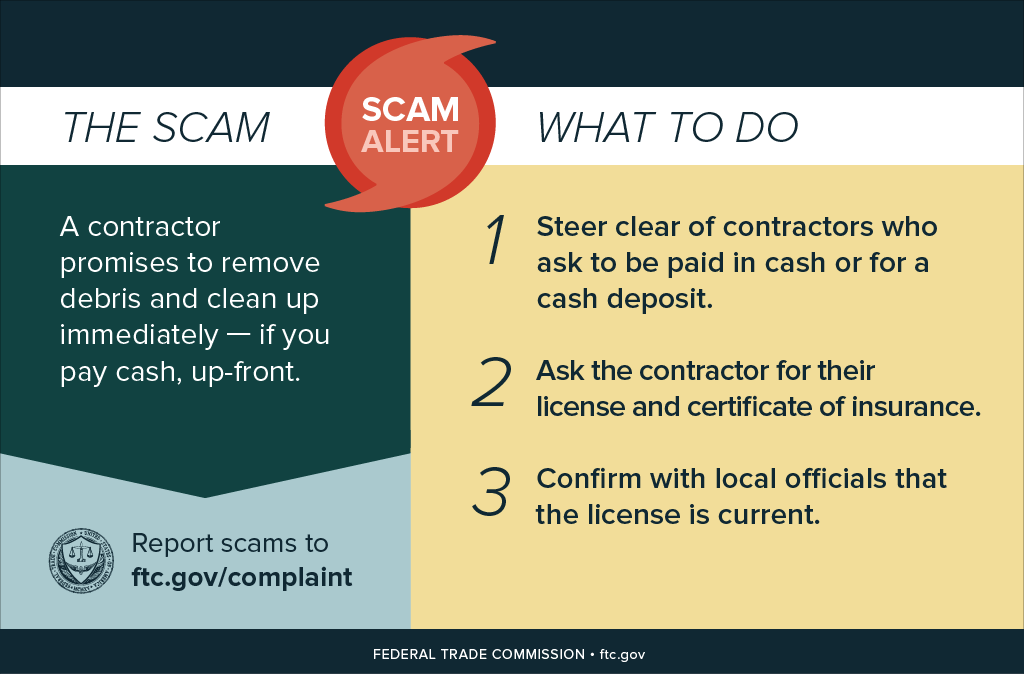Avoid Hurricane Clean-Up Scams
September 14, 2017
After natural disasters like Hurricanes Irma and Harvey, unlicensed contractors and scammers often come into the affected area promising immediate clean-up and debris removal. Some demand payment up-front for work they never do. Others simply lack the skills, licenses, and insurance to legally do the work.
Here are some tips to protect yourself, your property, and your money:
- Check with local consumer protection officials to find out whether tree and debris removal contractors need to be licensed in your area. If so, check out the license for the contractor you’re considering. Never sign any document or pay any contractor before verifying their license.
- Ask contractors for references and, if possible, call previous clients. Talk with your neighbors about what they’re paying for similar work.
- Write down the contractor’s driver’s license and vehicle information (make, model, and license plate number) in case you need to report the contractor to authorities.
- Ask a contractor to give you their license and certificate of insurance once they are on your property. If a contractor tells you certain work is covered by your insurance, call your insurance company to confirm.
- Get a written estimate and sign a written contract. Make sure it includes a description of the work, the materials included, when the work will be finished, the price, and the address and phone number of the contractor. Read all contracts and make sure all the blanks are filled in before you sign.
- Pay with a credit card or check so you can dispute charge or cancel the payment if there are problems later. Be wary of contractors who ask you to pay them in cash – even for a deposit. Negotiate a reasonable down payment, and only pay in full when the work is done to your satisfaction.
- Trust your gut. If you have any doubts about hiring someone, take your business elsewhere.
- If you have second thoughts about the contractor you hired, you have the right to cancel a contract within three days if you signed it in your home or at a seller’s temporary location, like a hotel room, convention center, or restaurant.
For more information, visit Dealing with Weather Emergencies.

by Colleen Tressler, Consumer Education Specialist, FTC
September 12, 2017

